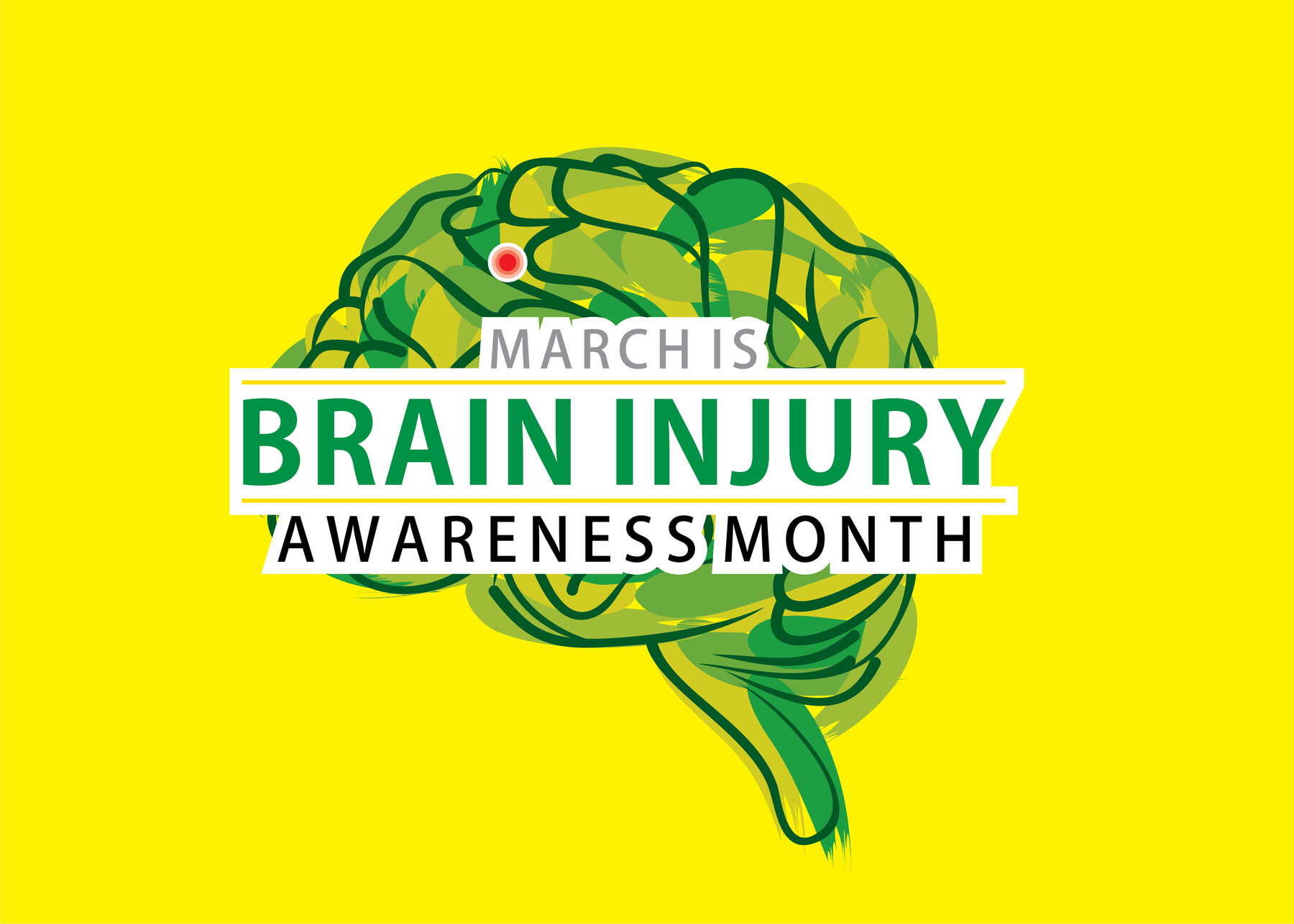~ by Richard Sgaglio
A brain injury occurs in the United States every 9 seconds. We’ve all heard the stories about how untreated brain injuries can be tragic - like in the cases of actress Natasha Richardson and, most recently, actor/comedian Bob Saget. More than 3.5 million children and adults sustain a brain injury each year, but the total incidence is not known as many go unreported.
Brain Injury Awareness Month is an annual awareness campaign and a three decade-long tradition led by the Brain Injury Association of America (BIAA). Each March, the BIAA conducts a public awareness campaign designed to educate the general public about brain injuries and the needs of individuals who have sustained them. Some of the goals of the BIAA’s public awareness campaign include:
- De-stigmatizing brain injury through outreach within the brain injury community
- Empowering those who have survived brain injury and their caregivers
- Promoting the many types of support that are available to people living with brain injury
What is considered a Brain Injury?
There are basically two types of brain injury according to the Brain Injury Association of America. They are;
An acquired brain injury (ABI) is an injury to the brain that is not hereditary, congenital, degenerative, or induced by birth trauma. Essentially, this type of brain injury is one that has occurred after birth. The injury results in a change to the brain’s neuronal activity, which affects the physical integrity, metabolic activity, or functional ability of nerve cells in the brain. These can include:
- Stroke
- Drowning
- Aneurysm
- Brain Tumor
- Infectious Disease
There are two types of acquired brain injury: traumatic and non-traumatic.
A traumatic brain injury (TBI) is defined as an alteration in brain function, or other evidence of brain pathology, caused by an external force. Traumatic impact injuries can be defined as closed (or non-penetrating) or open (penetrating). These can include:
- Falls
- Assaults
- Motor Vehicle Accidents
- Sports Injuries
- Combat Injuries
According to the BIAA, no two brain injuries are the same (no matter how similar they may appear). Loved ones and caregivers should always keep in mind that:
- A person with a brain injury is a person first.
- No two brain injuries are exactly the same.
- The effects of a brain injury are complex and vary from person to person.
- The effects of a brain injury depend on factors such as cause, location, and severity.
Below are some of the common cognitive and communication functions that may be affected with a brain injury. Cognitive:
- Attention
- Memory
- Problem Solving
- Time Management
- Thought Processing Speed
- Perception
- Comprehension
- Difficulty following conversations
- Inability to following directions
- Word Retrieval
- Inhibition Issues
- Slurred Speech and Aphasia
- Writing Issues
Common Sensory or Physical Repercussions may include changes in:
- Balance
- Walking/Gait
- Fine Motor Control
- Sense of Smell
- Sense of Taste
- Hearing
- Vision
What to do when someone has a head injury?
Injury to the brain can occur from a blow to the head or by rapid movements of the head that force the brain to bounce around within the skull. Significant swelling or bleeding inside the skull can result in increased pressure that damages delicate brain tissue. If you suspect that a serious brain injury has occurred and results in a diminished level of responsiveness, the first thing you should do is call 911.
The repercussions of brain injury can have a lasting impact on the survivor’s ability to participate in daily activities, including school, work, socializing, and spending time with their family. The patient’s caregivers and friends are often directly impacted as well. Imagine having difficulty with any number of the repercussions listed above and how it would impact a person on a day-to-day basis.
When it comes to a brain injury, the severity is measured based upon loss of consciousness, the presence of an infarct on a scan of the brain and pre/post injury memory loss.
However, the severity of the injury itself does not indicate the severity of the lingering effects.
Treatment of Brain Injury
Mild brain injuries such as mild concussions may not require any treatment at all and can resolve with time and rest. Severe brain injuries may require extensive medical care and rehabilitation. People with mild to moderate TBIs may only need minimal treatment. Your care may involve a short period of rest from sports, school, or work. Symptoms should improve within a few weeks.
For severe TBI, people often need hospital care and more intense treatments.
For all TBI grades, treatments may include:
- Counseling for emotional support. Many individuals experience stress and worries about their recovery. They may find that it is more difficult to get back to their work and hobbies than anticipated. Therefore, counseling is often very helpful in conjunction with other medical treatments.
- Surgery to treat a brain bleed (intracranial hemorrhage) or reduce pressure from brain swelling.
- Rehabilitation, including physical, occupational, and speech therapy.
- Rest. Depending on the type of TBI, some may need to rest for 1 to 2 days before going back to their typical activities. More severe head injuries may require longer periods of rest.
Brain injury is often referred to as the “invisible injury”. Many survivors exhibit minimal physically visible injuries yet struggle with everyday tasks. The “invisible injury” can lead to a lack of understanding and awareness of the population and all the more reason to recognize Brain Injury Awareness Month.
For additional resources on brain injuries, please contact The Brain Injury Association of America or locally, The Brain Injury Association of New York State
The information in the above article is not intended nor implied to be a substitute for professional medical advice, diagnosis, or treatment. Always seek the advice of your physician or other qualified health provider with any questions you may have regarding a medical condition.
